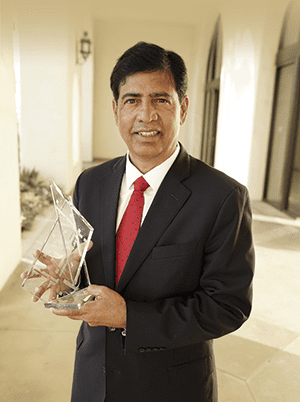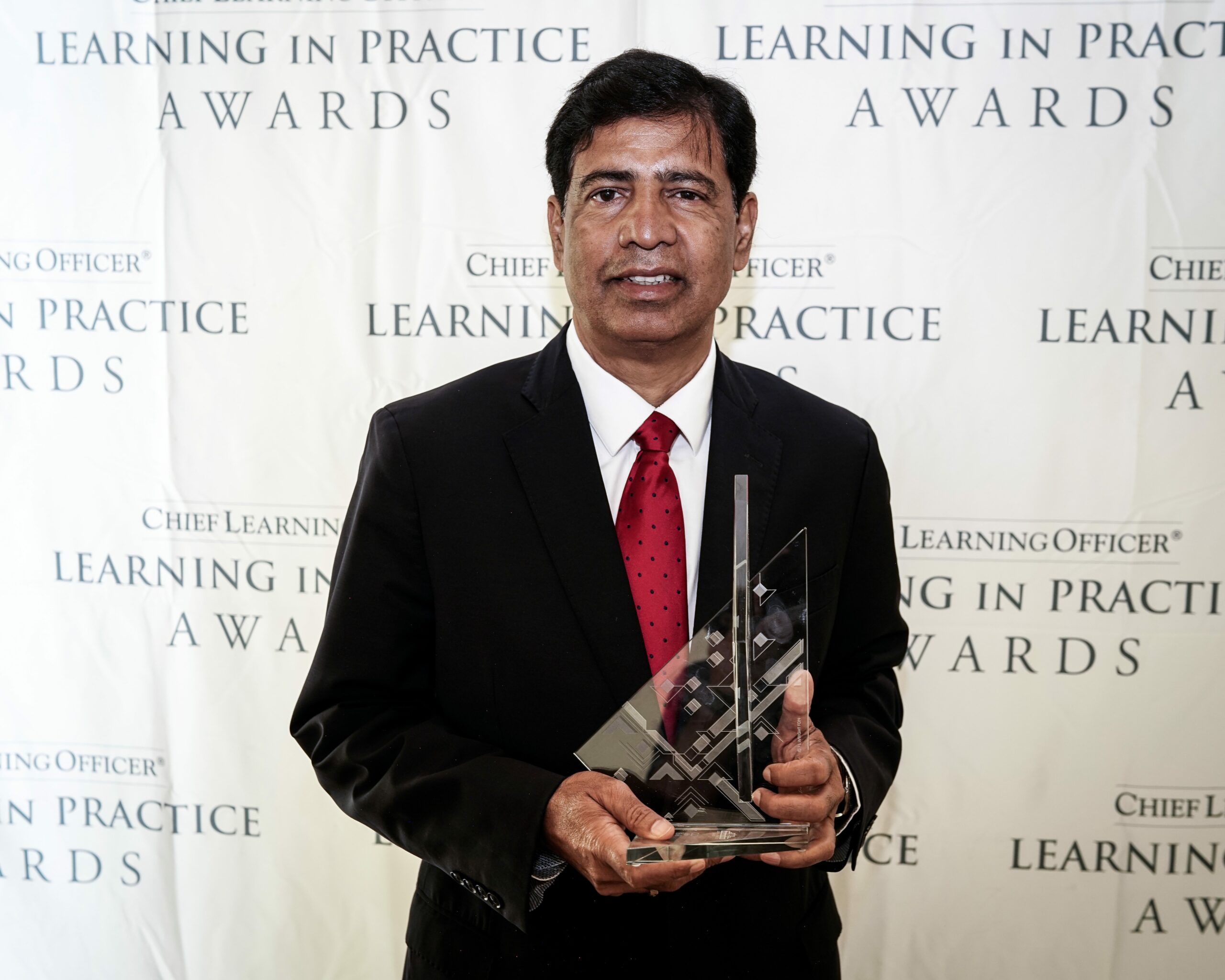Damodar Padhi is no stranger to awards. His work as a learning leader has been recognized with more than 30 national and international awards including recognition from the Association for Talent Development, the Brandon Hall Group, the U.K. Learning Awards and Chief Learning Officer’s own benchmarking program, the LearningElite.
That’s an impressive track record for someone who is not a learning professional by training. Padhi, an engineer who has worked at Hindustan Aeronautics Limited and General Electric, said the key to his career success has been that engineer’s mindset — building something from scratch or fixing a broken system.
His current position as global head of talent development for Tata Consultancy Services is no exception. The former CEO of TCS convinced Padhi to take on the job despite his lack of experience in talent development. He’s been drinking from the fire hose ever since.
At TCS, a multinational technology services firm with 390,000 employees of 134 nationalities operating in 46 different countries, he leads a team of more than 600 talent development professionals across the globe from the firm’s India headquarters.
Padhi said the increasingly rapid pace of technology innovation has sped up the learning curve and forced TCS to re-examine the conventional learning process. The result has been a move to digital delivery as the way to keep an accelerated pace and deliver on a global scale. That move away from a reliance on classrooms allows learning to happen anytime, anywhere and on any device.
“Digital learning was the answer to invoke and accelerate the knowledge part of the learning and bring the dispersed learners with diverse backgrounds to a level playing field,” he said. “Our connected classroom infrastructure … sped up the face-to-face connection with the subject matter experts.”
Padhi’s learning team built a system with internal content research and development teams at the core and augmented with a global network of subject matter experts, third-party content providers, universities and alliance partners. The result of the system has been to accelerate the speed and scale of TCS talent development, he said.
So far, business performance results have borne out the validity of that approach. TCS revenue has exceeded $17.5 billion and the attrition rate has dropped to 10.5 percent in the competitive professional services industry. The melding of technology’s ability to reach and connect people anywhere at any time to a solid core of content and expertise has been key.
“The moment we approach digital with an open mind it is seen more as an opportunity than an impediment,” Padhi said. “Digital is virtual interface to physical assets. With technology availability, affordability and adoption, digital speeds up everything, including learning.”

But Padhi said the transition had its fair share of challenges. Getting subject matter experts and learners to embrace digital learning was the first challenge. Working to integrate content partners into the TCS digital learning framework was another.
“We took the approach of ‘go full and go fast,’ meaning a pilot program must be large enough to ensure scalability and once the pilot is a success it must be implemented across the organization with no exception,” Padhi said.
Using short videos, mobile learning, connected classrooms and virtual labs, Padhi helped TCS transform learning to a high-tech ecosystem that resulted in greater efficiency. Today, 90 percent of TCS’ 5.2 million total learning days come from digital learning. That’s compared to 40 percent in 2015 and an industry benchmark of 41 percent.
Scores on the firm’s Associate Satisfaction Index for talent development also went up 220 basis points in two years. Padhi attributes success to the TCS talent development team.
“Apart from inspiring them to think big and holding their hand through the pilot phase, I don’t do much significant personal contribution,” Padhi said. “Learning is a continuous process — there is no steady state so I never allow the team to settle down.”
That restless spirit also led Padhi to focus on innovation in learning. TCS started the Initial Learning Program’s Innovation Lab in January 2015 to encourage younger workers to explore technical innovation using digital technologies.
Padhi said he got the idea when he heard former General Electric CEO Jack Welch say that the moment innovation is thought of as the job of Einstein or Edison, the entire mindset of innovation dies. The goal should be to engage all employees in innovation and find every opportunity, no matter how small, to do a job better.
Padhi said the lab encourages new hires to learn by doing and try out their ideas in labs under the supervision of talented employees. The results have been significant. In the past three years, the innovation lab has filed nearly 30 patent applications. But Padhi said that result was a byproduct rather than the goal of the program.
The main benefit is the consolidation of learning and accelerated integration with business teams. “It’s where the germination of minds happens,” he said.
The innovation teams work on areas of emerging technology like the “internet of things,” virtual reality, gaming, artificial intelligence, robotics, blockchain, image processing, analytics, neurobusiness, cybersecurity and authentication.
Beyond leading the digital transformation of learning, Padhi’s talent development team is making advances in leadership development. They trained more than 800 employees at five locations through Ascent, the company’s flagship program for first-time managers and have plans to scale the program up to reach 10,000 first-time managers per year. Across all leadership development programs Padhi’s team has developed 16,650 leaders so far in 2017 alone.
The firm’s development efforts also extend beyond developing TCS talent to broader social and economic issues. TCS launched an online platform to connect STEM professionals to community volunteer opportunities and partnered with academia to bridge the gap between school and work through faculty development programs and collaborating on custom master’s degree programs.
Despite their achievements so far, Padhi said his talent development team still has a ways to go to deliver a superior learner experience. Currently, many learning programs are pushed out to employees but they are building systems to develop a culture of learning that pulls people in rather than waits for them to be invited. When that happens it will be a day to celebrate, Padhi said.
Stepping back, Padhi said CLOs should see themselves as an integral part of their organization’s overall workforce planning and talent management. Learning programs should be developed to fuel career growth. After all, organizations succeed if their employees have the kind of learning that leads to their own individual growth.
“A learning organization is a growing organization,” Padhi said. “It is that simple.”















